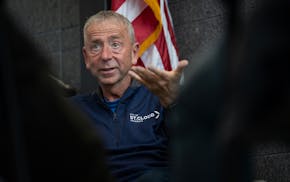Negotiations on high-stakes issues often go down to the wire. It should come as no surprise that in the talks on the Iranian nuclear program, we are seeing deadlines established and then extended as agreement is not reached. While the negotiations are technically between the five permanent members of the U.N. Security Council plus Germany and Iran, the reality is that these have become bilateral talks between the U.S. and the Iranians. They are about trying to fill in the details of the framework understanding that was announced on April 2 in Lausanne.
In theory, the tougher part of the negotiations should have been reaching understanding on the key principles for resolving what would be permitted in the Iranian nuclear program — and that is what was announced on April 2. It is not only the details that have proved difficult to finalize but the understanding itself seems up for negotiation. In a June 23 speech, Ayatollah Ali Khamenei, Iran's supreme leader, seemed to call into question the very principles that had been agreed upon: There would not be access to military sites for inspectors; the duration of restrictions on the Iranian nuclear program could not be for 10 to 12 years; Iran's nuclear research and development could not be limited, and the sanctions on Iran had to be lifted simultaneously with the signing of the agreement.
Iran's negotiators even before the speech were interpreting the April 2 understanding differently than the U.S. and the other members of the "P5+1." And, now the June 30 deadline for reaching agreement has been extended to July 7. Will there be an agreement? Should there be?
Clearly, if Khamenei has decided that the conditions he laid down in his speech must be met, there will be no agreement — nor should there be. All along, these negotiations have been about getting the Iranians to demonstrate the peaceful intent of their nuclear program in return for lifting the sanctions that have crippled Iran's economy. While the supreme leader has consistently called for a "resistance economy" — one that would be impervious to the sanctions regime — it is clear that the Iranians want to get out from under sanctions and have consistently demanded that sanctions be lifted immediately upon reaching agreement. The problem is they are unwilling to roll back their nuclear infrastructure in a way that would prove their nuclear program could not be used for anything but civil nuclear energy.
Even though the Lausanne framework provided for significant rollback of the number of centrifuges that could be enriching uranium and the stockpile of enriched uranium that Iran could have on hand, it did not require Iran to dismantle its enrichment infrastructure. The most significant achievement in the Lausanne framework is that it provided extensive transparency of the Iranian nuclear program — including over what is known as the supply chain for enrichment. And that transparency, which would last for 25 years, would make it very difficult for Iran to divert materials into a covert nuclear program. That matters. The other limitations — on numbers of centrifuges and on research and development on advanced models of centrifuges — last for 10 years and then are lifted after 15 years.
In other words, the essence of the framework is that it would provide rollback of sanctions for transparency. That means that the transparency must be real. We must have access to any suspect site in a timely manner. The past efforts at developing possible military dimensions to the program must be revealed in terms of the sites, the documents and the people working in these areas, so we have a baseline on which to be verifying what is being done now. Sanctions should be lifted only when the Iranians have implemented their key obligations in the deal. And if the Iranians violate the agreement, there must be guaranteed and meaningful consequences so they understand the price they will pay for all transgressions — no matter how small.
In the end, if we don't have a perfect agreement — and no arms-control agreement is ever going to be perfect — we must be able to deter Iran from cheating during the duration of the deal. Perhaps even more important, because Iran will be left as a nuclear threshold state at the end of the deal, the Iranians must know that if they move toward a weapons capability, it will trigger the use of force against their nuclear program. The clearer we are about consequences during the life of the agreement, the more credible such a threat will be later.
At this point, the content of the agreement matters more than the timing. President Obama was right Tuesday to say that there would be no deal if there was not a rigorous, verification system in place. Being just as clear on the consequences for cheating will be no less important.
Dennis Ross is the counselor at the Washington Institute for Near East Policy. He was special assistant to President Obama from 2009-2011 and was an envoy during the Clinton and George H.W. Bush administrations.

Kudos to St. Cloud's longtime mayor
Readers Write: Ethnic studies curriculum, public notice laws, student protests


